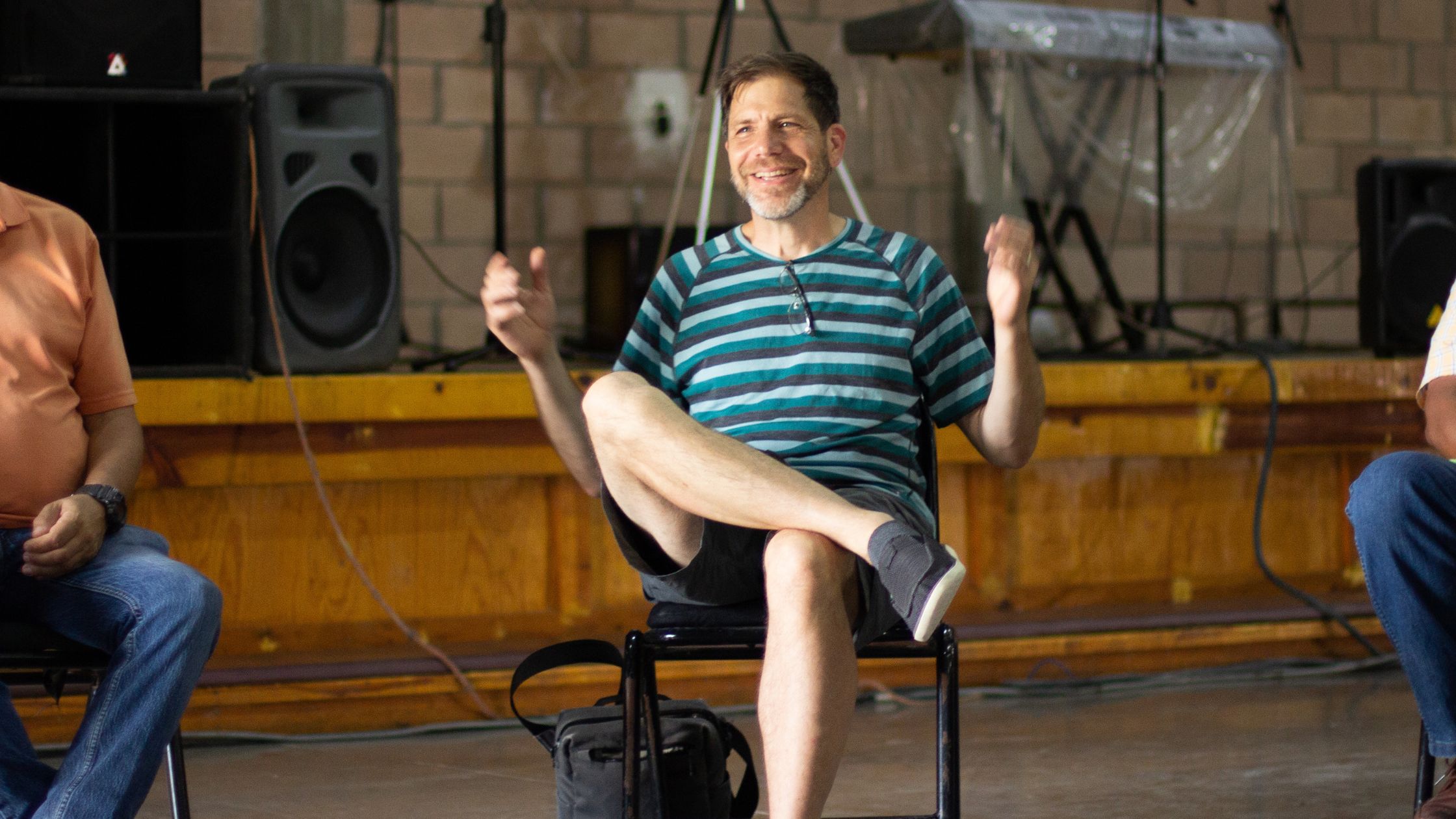This Thanksgiving, as we celebrate 30 years of transforming lives, we’re filled with gratitude for the countless individuals who have shaped our journey—from our founder’s visionary leadership to the generosity of our donors, partners, and supporters.
To commemorate this occasion, we spoke with Marcus J. Young about how it all began, the lives changed along the way, and the hope we’ve created together. This is your story as much as it is ours, and we’re deeply thankful for your role in making it a reality.
What inspired you to start this organization?
MJY: Starting an organization wasn’t part of my plan. My great-grandfather had been a pioneer missionary, and as a teenager, I felt a calling to carry on his unfinished vision.
I saw this as a “spiritual inheritance,” something to build upon and multiply, similar to how Isaac re-dug the wells his father Abraham had originally established. I asked God to pass down this generational mission, hoping to continue my great-grandfather’s legacy in a way that felt deeply meaningful and true.
What were the challenges and obstacles you faced in the early years?
MJY: In the beginning, my wife and I started as faith missionaries with minimal support. We sold or gave away most of what we owned, reducing our lives to suitcases. The challenges seemed endless.
One of the hardest lessons was realizing that pioneering didn’t just mean building on someone else’s foundation; it required gaining spiritual authority in each region we entered. Even our home church was unsympathetic toward missions, annually changing out the mission pastors, making our home base unstable.
We served the W*a, a marginalized people group, who were viewed with suspicion by the larger community due to their history of headhunting and drug trafficking. This weighed heavily on the indigenous church leadership and added a layer of dysfunction and complexity. The struggles we face either strengthen you or cut you off at the knees. We chose to press in and grow in Jesus’ grace through it all.
What were the biggest challenges the organization has faced, and what lessons did you learn?
MJY: Sometimes, the seemingly smaller issues turn out to be the most significant tests. A defining moment came in 2009 when we lost 200 acres of green tea fields and 60,000 pine trees to Suh, a W*a commander with thousands of troops. He constantly threatened to conscript the children from our shelter homes.
That was an early lesson in praying for enemies. God led me to rally prayer for Suh as a future follower of Jesus rather than condemn him. Later, God asked if I would be willing to let go of the project’s $1.5 million value, all to support the children, in exchange for Suh’s heart turning to Him.
It felt unfair, but I knew the answer. “Yes!”
To my surprise, I learned that God was pursuing my own heart transformation through praying for Suh; I had thought it was about changing him. We’ve learned the importance of keeping a “love posture” in our hearts, even toward those who oppose us.
How has the organization evolved over the years?
MJY: We began as faith missionaries serving a single tribe, but over time, our mission expanded. Our focus shifted toward innovative justice work, and by God’s invitation, we broadened our efforts to include places like the Philippines.
We also established our brand, grew a team, and added organizational structure to support our mission’s reach. Capacitating leaders and indigenous teams who serve children in hard places is still our greatest joy.
Can you share memorable stories about donors who have gone above and beyond in their support?
MJY: Several donors have left lasting impacts on our mission. Anu Sushi, with its tagline “sushi and purpose rolled into one®,” devotes part of its profits to serving children at risk in Myanmar and employs Burmese refugees in the U.S. I admire their commitment to “kingdom work” through their business model.
Equally inspiring are the smaller monthly donors who give what they can. People often feel that if they can’t give a large amount, their gift isn’t enough. But even a small seed holds the potential to multiply.
I’m also deeply grateful for “Grandma” Jean Brinser, who left a portion of her inheritance to INfire. Jean led a life of love and adventure, marrying her music teacher, a man much older than her, and spending their years together traveling the world.
Widowed young, she became a shrewd investor, growing her wealth and giving generously to world missions. She saved every one of our newsletters and was one of the earliest supporters of the properties we purchased in Thailand and Myanmar. She even opened Roth IRAs for us, answering in real-time my private prayers about faith missionaries planning for retirement. Her early influence is part of the foundation that holds up our mission today, and her legacy of generosity continues to inspire us. She impacted our mission in many ways, and we miss her.
This reflection from MJY captures the spirit that has carried our mission forward for three decades. As we look to the future, we remain inspired by the legacy of love, resilience, and generosity that started it all. Thank you for celebrating this milestone with us and for being part of our journey toward a world filled with justice, compassion, and hope.
Join our fight
Help us stand in the line of fire for children in conflict

